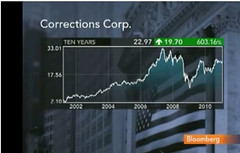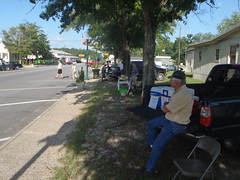Could Georgia’s
anti-immigration law already have ill effects?
AP wrote May 20, 2011,
Immigration crackdown worries Vidalia onion county:
 Signs point to an exodus in Vidalia onion country. Fliers on a
Mexican storefront advertise free transportation for workers willing
to pick jalapenos and banana peppers in Florida and blueberries in the
Carolinas. Buying an outbound bus ticket now requires reservations.
While most states rejected immigration crackdowns this year, conservative
Georgia and Utah are the only states where comprehensive bills have
passed. With the ink barely dry on Georgia’s law, among the toughest
in the country, the divisions between suburban voters and those in
the countryside are once again laid bare when it comes to immigration,
even among people who line up on many other issues.
Signs point to an exodus in Vidalia onion country. Fliers on a
Mexican storefront advertise free transportation for workers willing
to pick jalapenos and banana peppers in Florida and blueberries in the
Carolinas. Buying an outbound bus ticket now requires reservations.
While most states rejected immigration crackdowns this year, conservative
Georgia and Utah are the only states where comprehensive bills have
passed. With the ink barely dry on Georgia’s law, among the toughest
in the country, the divisions between suburban voters and those in
the countryside are once again laid bare when it comes to immigration,
even among people who line up on many other issues.
Guess who wanted this crackdown even though rural south Georgians didn’t:
The crackdown proved popular in suburban Atlanta, where Spanish-only
signs proliferate and the Latino population has risen dramatically over
the past few decades. Residents complain that illegal immigrants take
their jobs and strain public resources.
That’s right: Atlanta, not content with lusting after our water,
now scares off our workers.
 Do immigrants really take jobs from locals?
Such claims never seem to have data to back them up.
I tend to agree with
Carlos Santana:
Do immigrants really take jobs from locals?
Such claims never seem to have data to back them up.
I tend to agree with
Carlos Santana:
“This is about fear, that people are going to steal my job,” Santana said
of the law. “No we ain’t. You don’t clean toilets and clean sheets,
stop shucking and jiving.”
In south Georgia local people won’t pick Vidalia onions for the wages
immigrants will, and the wages locals want the farmers can’t afford.
 Remember who profits from this crackdown, at the expense of Georgia
farmers and taxpayers:
private prison companies and their investors.
Remember who profits from this crackdown, at the expense of Georgia
farmers and taxpayers:
private prison companies and their investors.
We don’t need a private prison in Lowndes County.
Spend those tax dollars on education instead.
-jsq
PS: Vidalia onion story owed to Jane Osborn.
With the law passed and ready for implementation, many rural farmers—especially in Central and South Georgia—are taking notice to the exodus of migrant workers and immigrants which has left some farmers without workers to pick crops.
Valdosta’s Ellis Black who represents parts of Lowndes County as a state representative helped to pass Gov. Nathan Deal’s conservative and punitive agenda and consequently it has contributed to drive an increasing number of migrant workers out of the Peach State.















